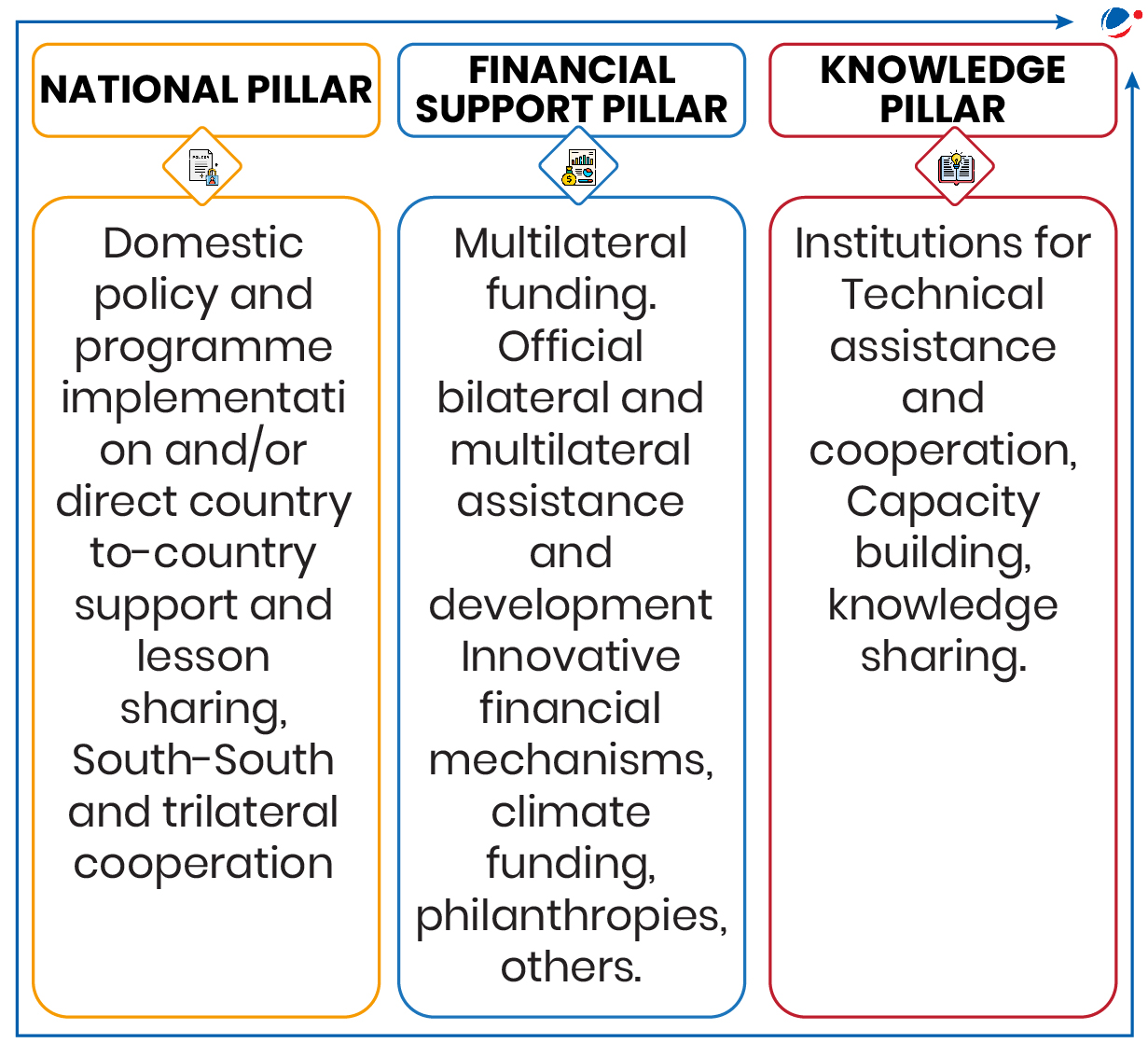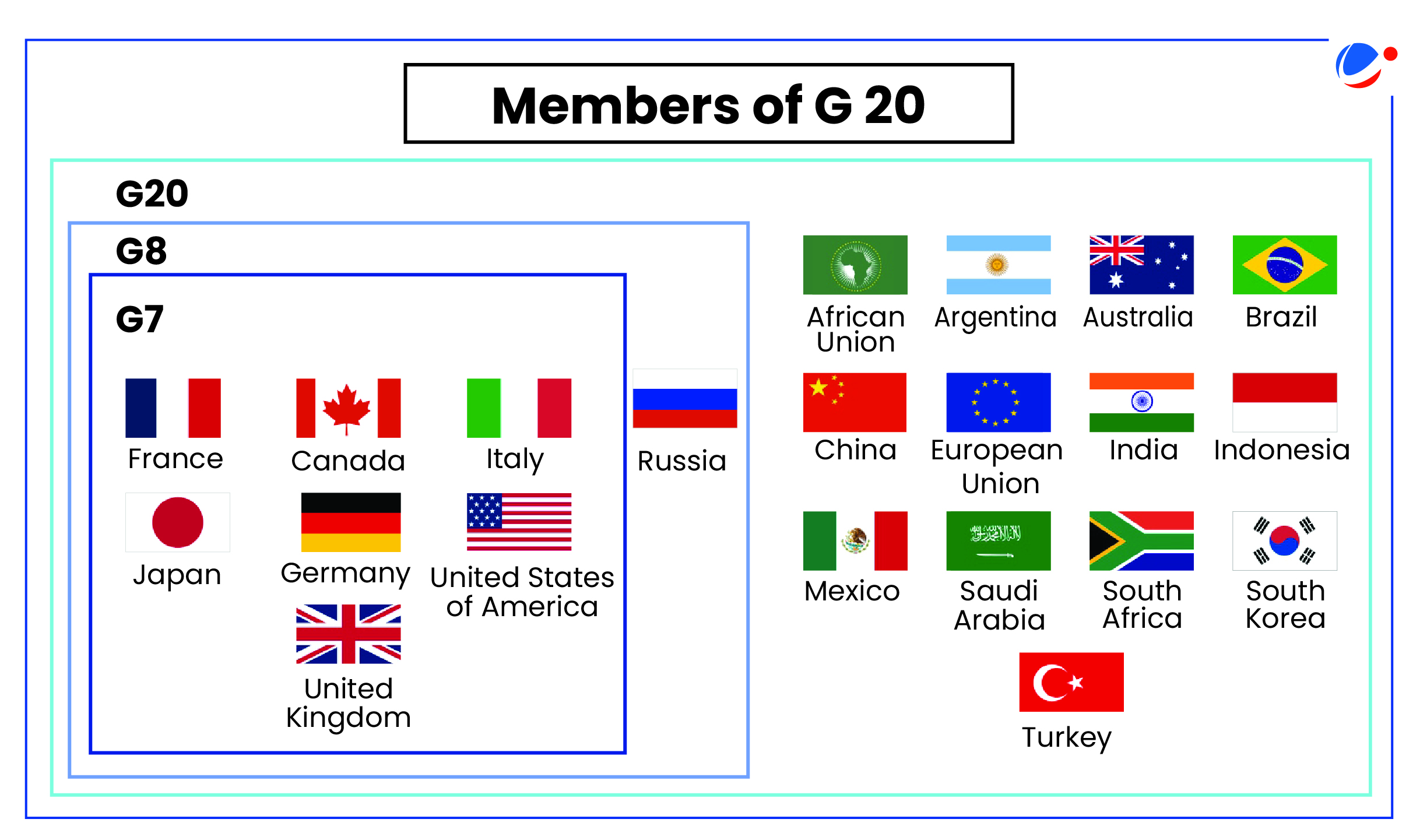Why in the News?
The 18th G20 Summit was held in Rio de Janeiro, Brazil, under the theme Building a Just World and a Sustainable Planet.
About G20 Rio de Janeiro
- The Rio summit marked the first time the African Union (AU) participated as a full member.
- Hosted by Brazil, the third Global South host after Indonesia (2022) and India (2023).
- The next G-20 is to be in South Africa. Brazil, India & South Africa together forms the troika of G20. These countries representing the Global South and are also part of IBSA and BRICS grouping.
Key takeaways from the summit: The G20 Rio de Janeiro Leaders' Declaration
- Social inclusion and the fight against hunger and poverty
- Global Alliance against Hunger and Poverty: Launched to eradicate poverty and hunger (refer Box)
- Global Coalition for Local and Regional Production, Innovation and Equitable Access: Launched to promote access to vaccines, diagnostics, and other health technologies for neglected diseases and vulnerable persons.
- Commitments on Basic Needs and Equality: For the first time, G20 committed to mobilising resources for basic sanitation, drinking water, combating racism, and promoting racial equality to reduce inequalities.
- Sustainable development, energy transitions and climate action: Establishment of Task Force on a Global Mobilization against Climate Change to identify & address structural barriers to foster private capital flows for climate action, particularly for developing countries.
- Reform of global governance institutions: Endorsed the G20 roadmap for better, bigger and more effective multilateral development banks (MDBs).
- Tax on the super-rich: Leaders agreed for the first time to engage cooperatively to ensure that ultra-high-net-worth individuals are effectively taxed.
 About the Global Alliance against Hunger and Poverty
|
Group of 20 (G20)
|
G20 at a Crossroads: It reveals limitations as a global governance architecture
- Representational inequity: Reluctance to rename the forum as "G21" after the African Union's inclusion demonstrates persistent barriers to genuine global representation.
- Diplomatic Fragmentation:
- Key leaders' absences at the recent summit, like the Russian President and Saudi Crown Prince, highlight divisions within the G20.
- Also, Argentina's opposition to sustainable development and welfare spending underscores significant differences among members.
- Major economies like the US, Germany, and Argentina resist wealth tax and progressive taxation proposals, impeding efforts to reduce global disparities.
- Unrealized Goals in Governance Overhaul:
- Global institutional reforms: Calls for reforming global institutions like the UN Security Council and World Bank remain unaddressed, limiting the G20's impact on global governance.
- Climate Commitments: Despite coinciding with COP29, the summit failed to advance climate goals beyond previous declarations.
- Structural and Operational Weaknesses: G20 decisions are non-binding, reducing their enforceability. Also, it operates without a formal charter, limiting accountability and public scrutiny.
- Competition from Other Institutions: Growing influence of organizations like BRICS and the Shanghai Cooperation Organisation (SCO) poses challenges to a divided G20.
Enhancing the Effectiveness of G20 Summits
- Permanent Secretariat: Establish a secretariat with research and policy capabilities to ensure policy continuity and strategic insights between summits.
- Clear Division of Labour
- Focus for G20: Global public goods like monetary stability, trade openness, poverty reduction, and pandemic control.
- Focus for G7: Geopolitical issues
- Empowering Middle-Income Members: Enable countries like Argentina, Brazil, India, and South Africa to take active diplomatic roles.
- Accountability Framework: Introduce mechanisms to track commitments, monitor implementation, and provide transparent annual performance reviews.
- Strategic Coordination with UN Agencies: Collaborate with organizations like WHO, UNEP, and UNDP to avoid to duplication of efforts and maximize public goods delivery.
- Addressing Global South Priorities: Advocate for equitable global governance, reducing G7 dominance (e.g., G7 represents 13% of the population but controls 59% of IMF and World Bank voting rights).
Conclusion
In a world grappling with overlapping crises—conflicts, hunger, rising inequalities, forced migration, health emergencies, debt burdens, and the climate crisis- to remain effective and legitimate, the G20 must evolve into a more inclusive, accountable, and action-oriented platform that truly represents the diverse needs and priorities of a rapidly changing world.





